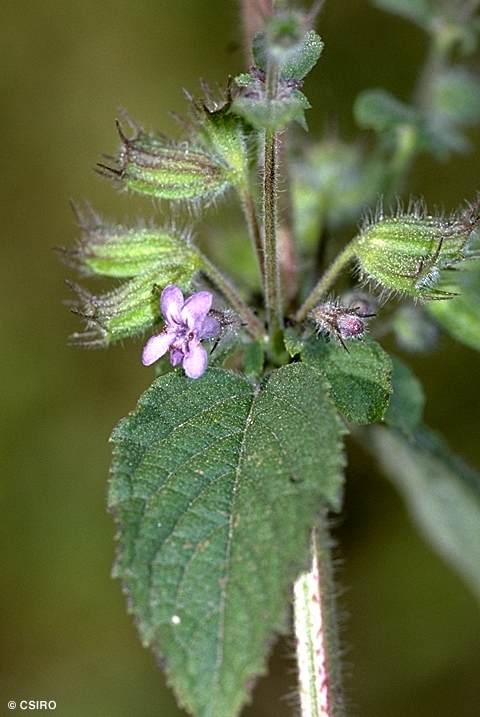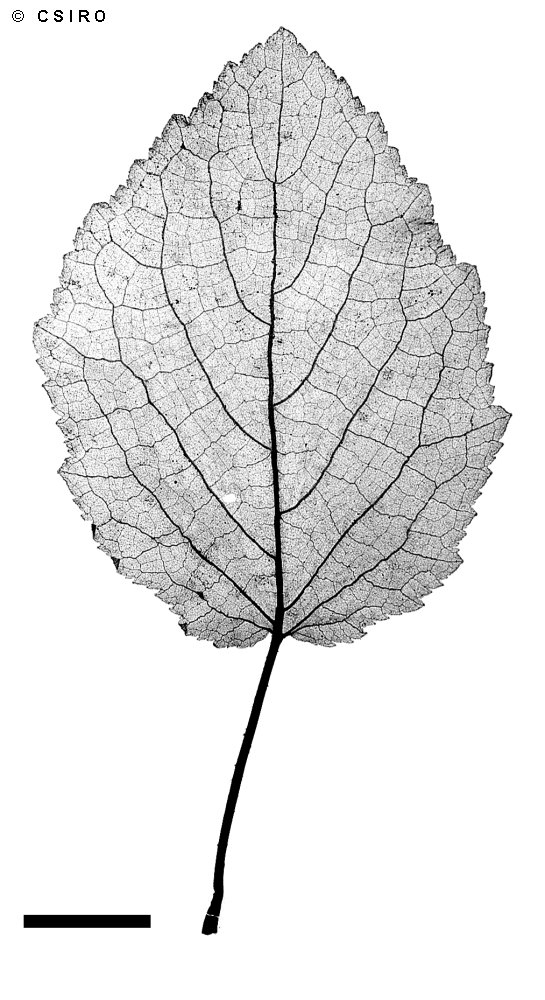Australian Tropical Rainforest Plants - Online edition
Mesosphaerum suaveolens (L.) Kuntze





Kuntze, C.E.O. (1891) Revisio Generum Plantarum 2: 525.
Mint Bush; Hyptis; Horehound; Wild Spikenard
Flowers and fruits as a herb but frequently grows into a shrub.
Inflorescence a 2-5-flowered cyme on peduncles which are usually longer than the petioles. Calyx about 5-5.5 mm long, lobes linear, all parts of the outer surface of the calyx clothed in long white hairs and short glandular hairs or spherical hyaline stalked glands. Corolla about 4-5 mm long, outer surface clothed in white hairs. Anthers pink, red or purple, borne obliquely on the filaments, filaments hairy. Style glabrous, inserted in the centre between the lobes of the ovary.
Cotyledons about 9-12 x 7-11 mm, purple on the underside, petiole slightly shorter than the cotyledon blade. Stout septate hairs present on the upper surface of the first pair of leaves. At the tenth leaf stage: leaf blade about 30-35 x 25-30 mm, stout septate and fine simple hairs present on the upper surface. Seed germination time 38 to 100 days.
An introduced species originally from tropical America but now pantropic, which has become naturalised in WA, NT, CYP, NEQ, CEQ and southwards as far as south-eastern Queensland. Altitudinal range from near sea level to 750 m. Usually grows on heavily grazed open forest areas but also found in monsoon forest and vine thickets.
This species may have medicinal properties.





